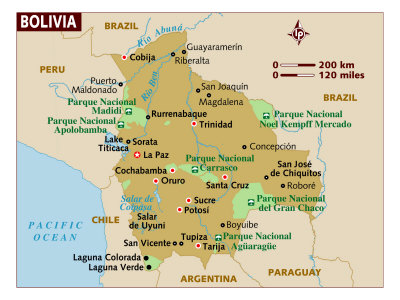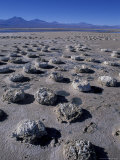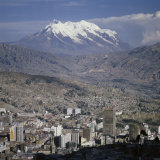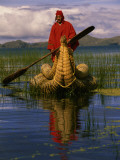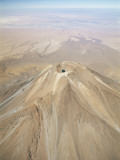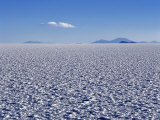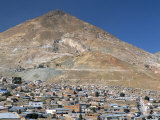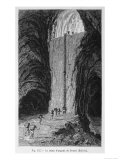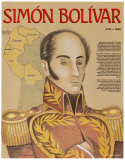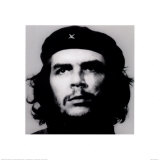|
|
|
|
|
|
|
|
|
|
|
|
BOOKS ABOUT BOLIVIA / SOUTH AMERICA
|
|
|
|
|
|
|
|
|
|
|
|
|
|
|
|
|
|
|
 |
|
|
|
|
|
|
Bolivia Posters, Art Prints, Charts, Photographs & Maps
for social studies, history, geography, and language arts educators and home schoolers.
|
geography > South America > BOLIVIA < social studies
|
The Republic of Bolivia is a landlocked country located in central South America, bordering Brazil on the north and east, Paraguay and Argentina on the south, and Chile and Peru on the west. The west of Bolivia is in the Andes Mountains with Lake Titicaca straddling the Peruvian border.
Most Bolivans live in the central Altiplano (Spanish: high plain) region, and the eastern part of Bolivia is covered by the Amazonian rainforest.
The world's largest salt flat is located southwestern Bolivia.
Bolivia is named in honor of Simón Bolivar.
Bolivia was the major supply of silver for Spain during the era of the New World Spanish Empire, with Cerro Rico at Potosi being the main source.
Bolivia has received aid from Iran recently, indicating an interest in Bolivia's uranium assets.
|
|
|
|
The Altiplano in west-central South America, where the Andes are at their widest, is the second largest high plateau on Earth after Tibet.
The Altiplano is part of western Bolivia, eastern Bolivia is the humid Amazon Rainforest.
Altiplano is Spanish for “high plain”.
|
|
|
|
La Paz is the “administrative” capital of Bolivia, and at 11,975 ft above sea level is the world's highest capital city. The city sits in a bowl lke area created by the surrounding high mountains of the Altiplano, with the towering triple-peaked Illimani, the most dominiate landmark.
La Paz was founded by Spanish conquistadors at Laja, a Native American settlement, in 1548, and later moved to its present location. The name, meaning Peace, was commemorating the end of in-fighting amongst conquistadors.
The La Paz Metropolitian area is the most populous urban area in Bolivia. The official capital of Bolivia, and seat of Justice, is Sucre.
|
|
|
|
Lake Titicaca, in the Andes Mountains straddling the border between Peru & Bolivia, is the world's highest commercially navigable lake, the largest freshwater lake in South America, and 2nd largest in the world.
Lake Titicaca is the best known geographical feature of the Altiplano.
• more Native Americans posters
|
|
|
|
Licancabur, a symmetrical stratovolcanoes, straddles the border between Chile and Bolivia.
Archeological site of Inca ruins indicate the volcano has been quiet for 500-1000 years.
|
|
|
|
Salar de Uyuni, in southwest Bolivia, is the largest salt flat in the world at over 12,000 square kilometers. The salt crust is only a few inches thick and covers a lake of brine that is rich in lithium. The area is also a major breeding ground for several species of pink flamingos.
|
|
|
|
|
|
|
World Religions -
Christianity Wall Poster
“Judge not, and you will not be judged; condemn not and you will not be condemned; forgive, and you will be forgiven.”
Luke 6:37
• more World Religions posters
|
|
|
|
Simón Bolivar
b. 7-24-1783; Caracas, Venezuela
d. 12-17-1830; Santa Marta, Colombia (tuberculosis)
Simón Bolivar is often called “the George Washington of South America.” His heroic deeds helped many South American nations win their independence. During his lifetime, he helped millions of Latin Americans realize the dream of freedom. But he died without ever seeing his own fondest dream come true.
Simón Bolivar was born to a wealthy family in Caracas, Venezuela. His parents died when he was just a child, and he inherited a fortune. While on a trip to Europe, he met and married a young Spanish girl. But she died a short time after they returned to Caracas. Returning to Europe, Bolivar vowed that he would one day liberate Venezuela from the Spanish. He fulfilled this promise in 1811 when he captured Caracas and proclaimed Venezuela independent. The Spanish fought back, and soon forced Bolivar to flee to Jamaica and then to Haiti. But Bolivar gathered a force of fighting men and returned to South America. There, his victories over the Spanish led to independence for Bolivia, Colombia, Peru, and Ecuador.
Bolivar's dream was to unite all the countries of South America into one large and powerful nation. But one by one, the countries withdrew from the Colombian Union, as Bolivar called his union. By 1828, Simón Bolivar ruled only what is now Colombia. In 1830 health problems forced him to resign as Colombia's President, and he died in December of that year.
• Hispanic Heritage posters
• Panama
|
|
|
|
Che Guevara
(Dr. Ernesto Guevara de la Serna)
b. 6-14-1928; Argentina
d. 10-9-1967; Bolivia
Che Guevara, best known as a Marxist revolutionary and guerrilla leader, was also trained as a physician.
A 1960 picture of Che by Alberto Korda was the inspiration for artist Jim Fitzpatrick who “posterized” version is said to be the most reproduced image in photography.
Che Guevara quotes ~
• “If you tremble indignation at every injustice then you are a comrade of mine.”
• “Let me say, at the risk of seeming ridiculous, that the true revolutionary is guided by great feelings of love.”
|
|
|
|
Jaime Escalante
b. 12-31-1930; La Paz, Bolivia
d. 3-30-2010; near Sacramento, CA (bladder cancer)
Jaime Escalante, a professor and teacher of mathematics, gained renown and distinction for his work between 1974 and 1991 at Garfield High School in Los Angeles, California in teaching students calculus.
|
|
|
previous page | top
|
|
I have searched the web for visual, text, and manipulative curriculum support materials - teaching posters, art prints, maps, charts, calendars, books and educational toys featuring famous people, places and events - to help teachers optimize their valuable time and budget.
Browsing the subject areas at NetPosterWorks.com is a learning experience where educators can plan context rich environments while comparing prices, special discounts, framing options and shipping from educational resources.
Thank you for starting your search for inspirational, motivational, and educational posters and learning materials at NetPosterWorks.com. If you need help please contact us.
|
|
|









